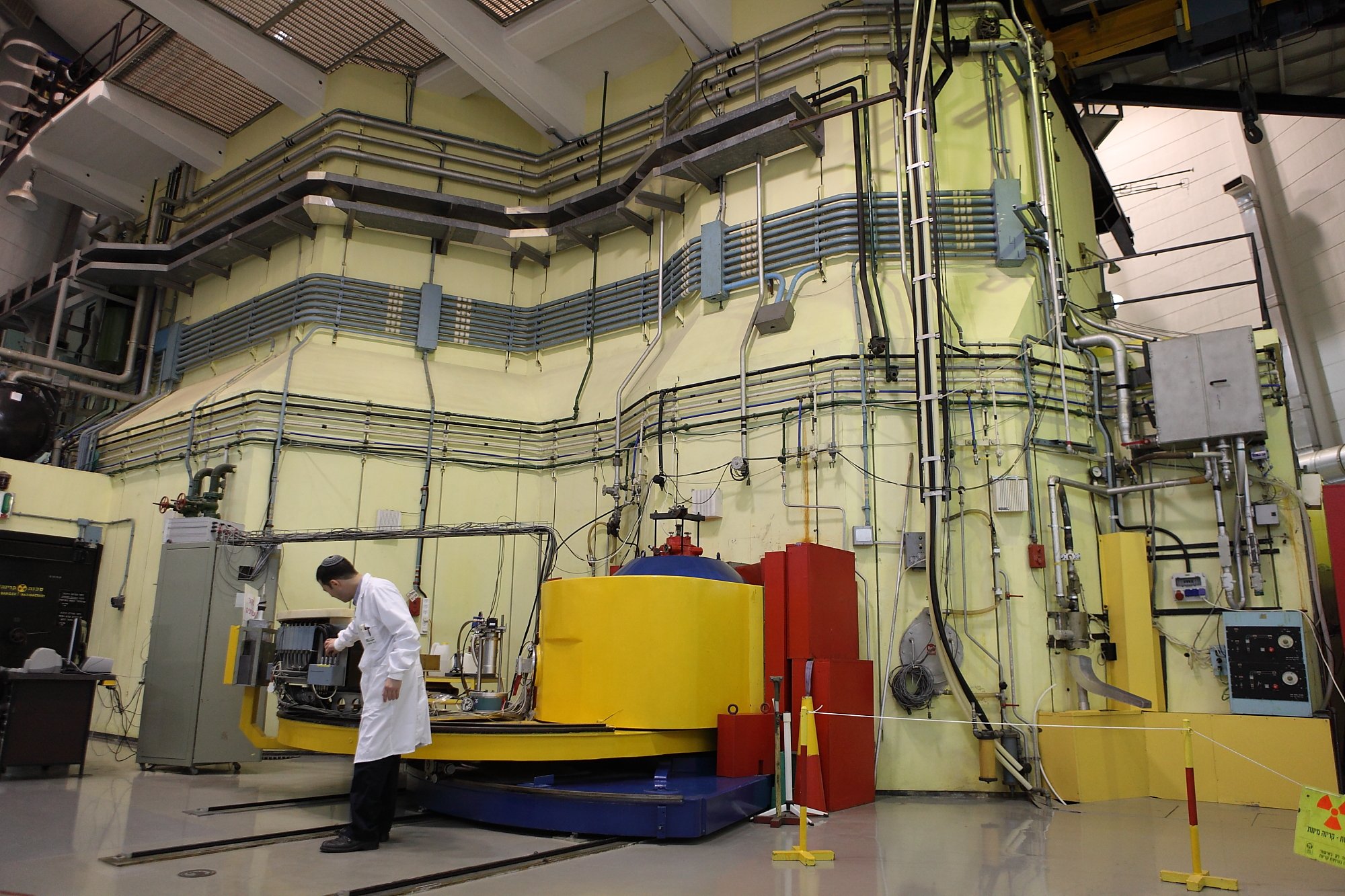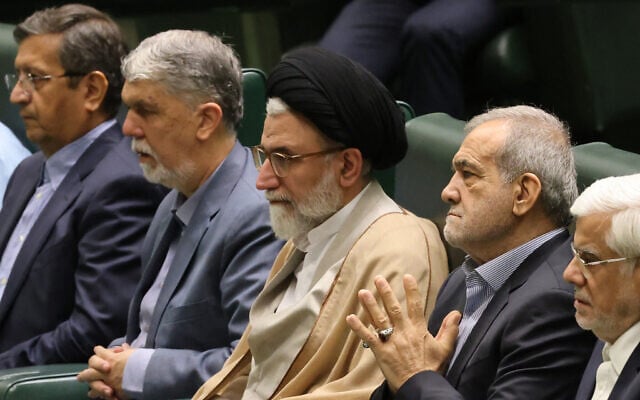



The head of the International Atomic Energy Agency said Monday that the information Iran claimed it seized regarding Israel’s nuclear program “seems to refer” to the country’s Soreq Nuclear Research Center, the first acknowledgment outside of Tehran of the theft.
The Prime Minister’s Office had no immediate response to the remarks by IAEA Director General Rafael Mariano Grossi, who spoke during a news conference in Vienna.
The alleged theft comes at a time of renewed tensions over Iran’s nuclear program, which enriches uranium a short, technical step away from weapons-grade levels and looks poised to reject a US proposal over a possible deal on its atomic program.
“We have seen some reports in the press. We haven’t had any official communication about this,” Grossi told reporters. “In any case, this seems to refer to Soreq, which is a research facility which we inspect by the way. We don’t inspect other strategic parts of the program, but this part of the program we do inspect.”
He did not elaborate on where he received his information, though the IAEA maintains a confidential reporting system for nations to report security incidents involving their nuclear programs.
Soreq, located 20 kilometers (12 miles) south of Tel Aviv, is a national laboratory for nuclear science established in Israel in 1958, engaged in nuclear science, radiation safety and applied physics.

The IAEA has so-called item-specific safeguards agreements with Israel, Pakistan and India, all countries that are not party to the Treaty on the Non-Proliferation of Nuclear Weapons. Under Israel’s agreement, the IAEA monitors Soreq but has no access to Israel’s nuclear facility at Dimona, believed to provide the fuel for the country’s undeclared nuclear weapons program.
Over the weekend, Iranian state television and later the country’s intelligence minister claimed without offering evidence that Tehran seized an “important treasury” of information regarding Israel’s nuclear program.
Israel, whose undeclared atomic weapons program makes it the only country in the Mideast with nuclear bombs, has not acknowledged any such Iranian operation targeting it.
According to Tasnim, a semi-official Iranian media outlet closely affiliated with the Islamic Revolutionary Guard Corps (IRGC), the intelligence was gathered and transferred by Roy Mizrahi and Almog Atias, two Israelis arrested by Israeli police in May on suspicion of collecting intelligence on behalf of Iran.
Iranian Intelligence Minister Esmail Khatib claimed thousands of pages of documents had been obtained and would be made public soon. Among them were documents related to the US, Europe and other countries, which, he claimed, had been obtained through “infiltration” and “access to the sources.”

He did not elaborate on the methods used. However, Khatib, a Shiite cleric, was sanctioned by the US Treasury in 2022 over directing “cyber espionage and ransomware attacks in support of Iran’s political goals.”
For Iran, the claim may be designed to show the public that the theocracy was able to respond to a 2018 Israeli operation that spirited out what Prime Minister Benjamin Netanyahu described as a “half ton” of documents related to Iran’s program.
That Israeli announcement came just before US President Donald Trump, in his first term, unilaterally withdrew America from Iran’s 2015 nuclear deal with world powers, which greatly limited its program in exchange for the lifting of economic sanctions.
This week, Western nations are expected to go before the IAEA’s Board of Governors with a proposal to find Iran in noncompliance with the United Nations’ nuclear watchdog. It could be the first time in decades, and likely would kick the issue to the UN Security Council.
That could see one of the Western countries involved in the 2015 nuclear deal invoke the so-called snapback of UN sanctions on the Islamic Republic. The authority to restore those sanctions by the complaint of any member of the original 2015 nuclear deal expires in October, putting the West on a clock to exert pressure on Tehran over its program before losing that power.
